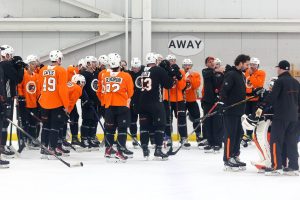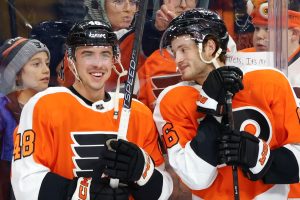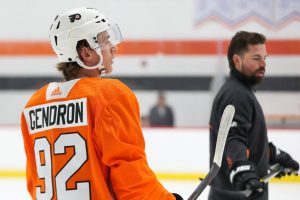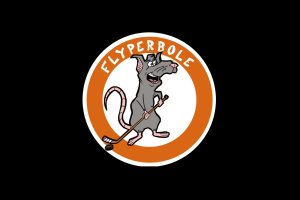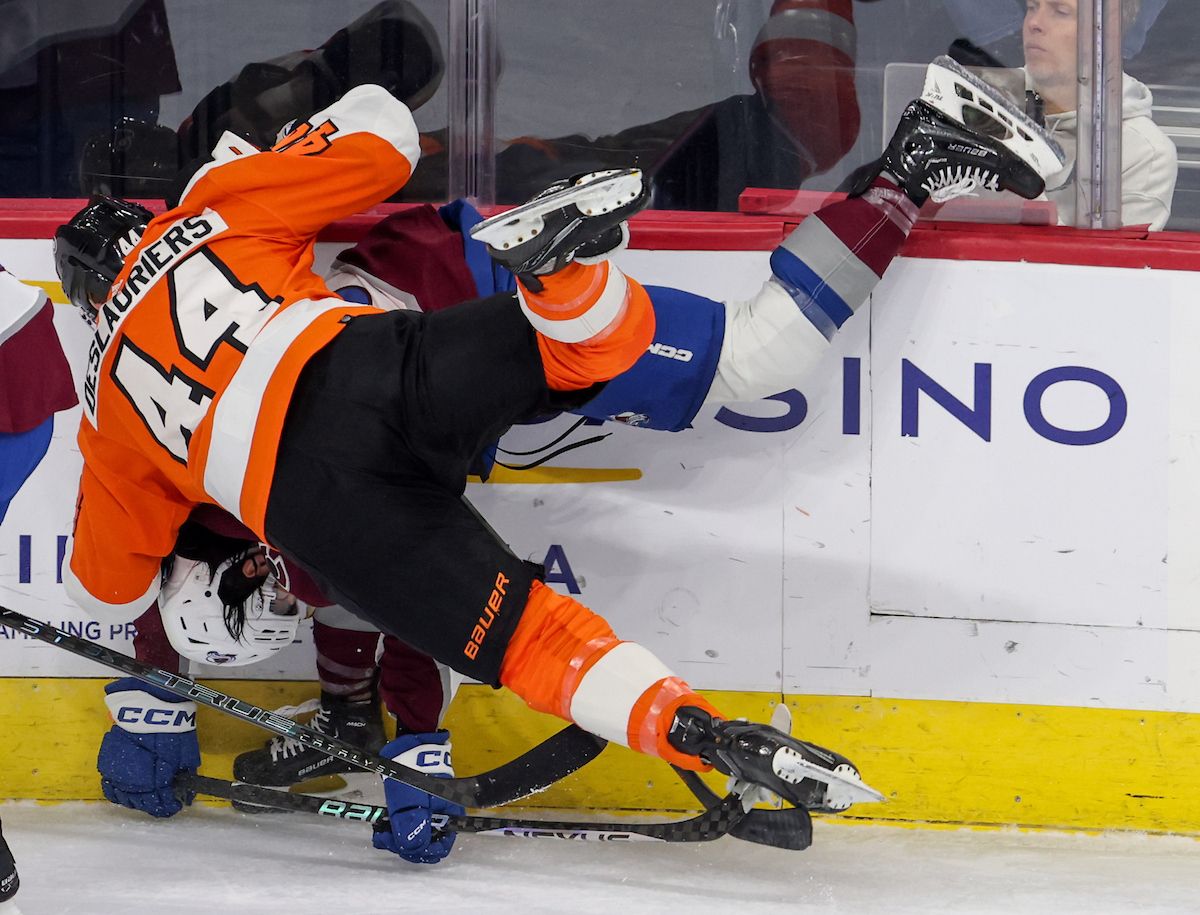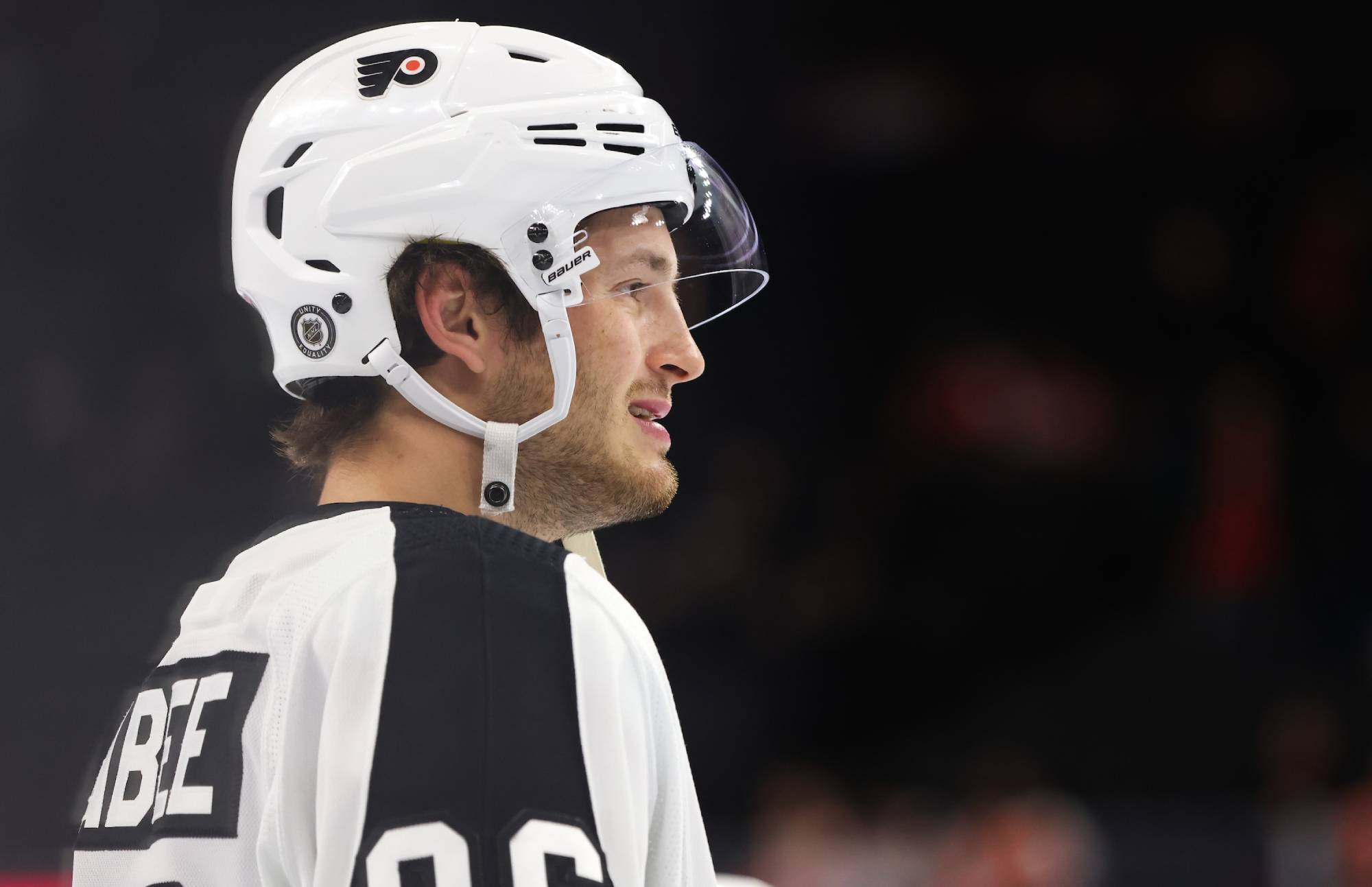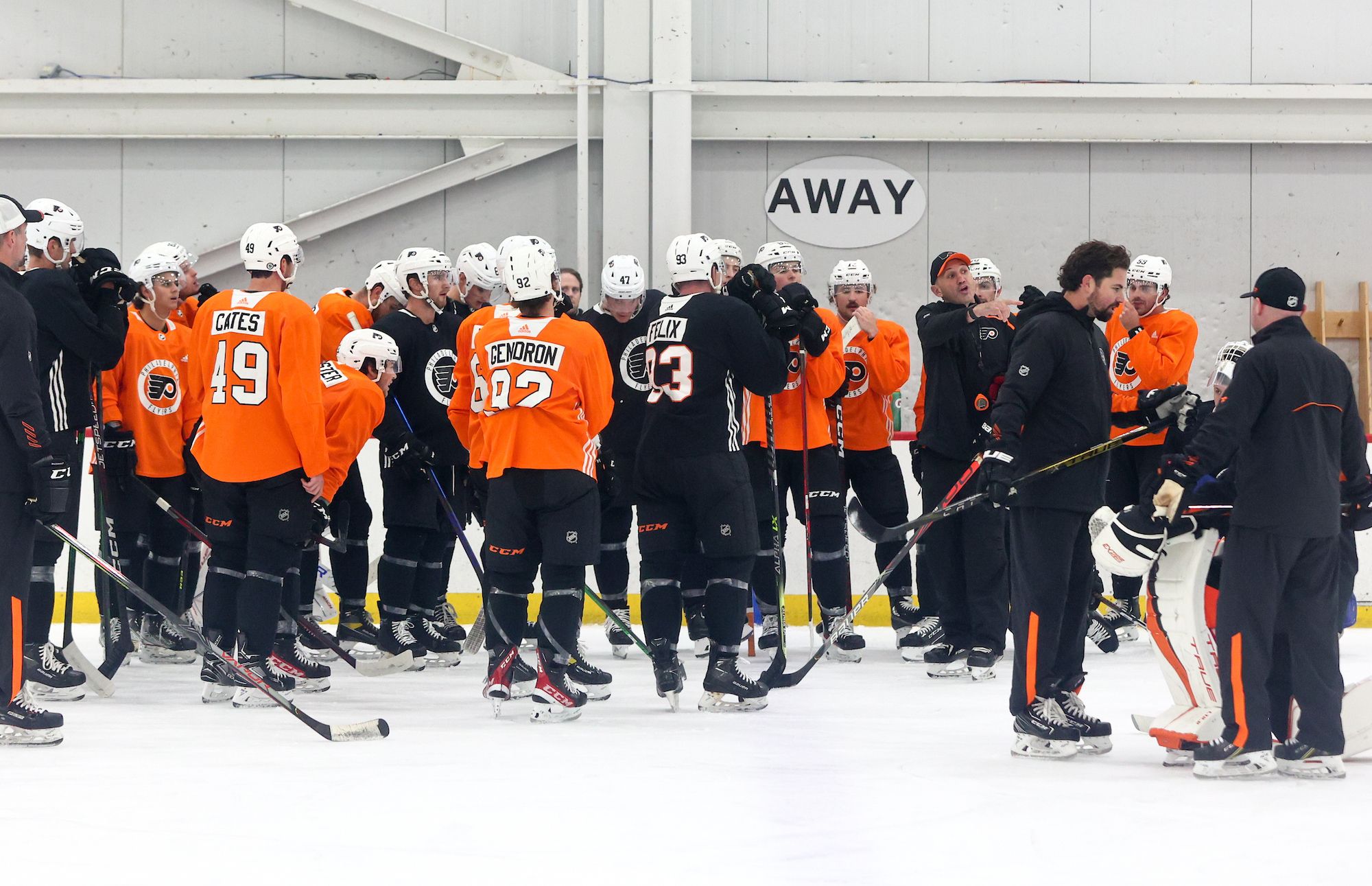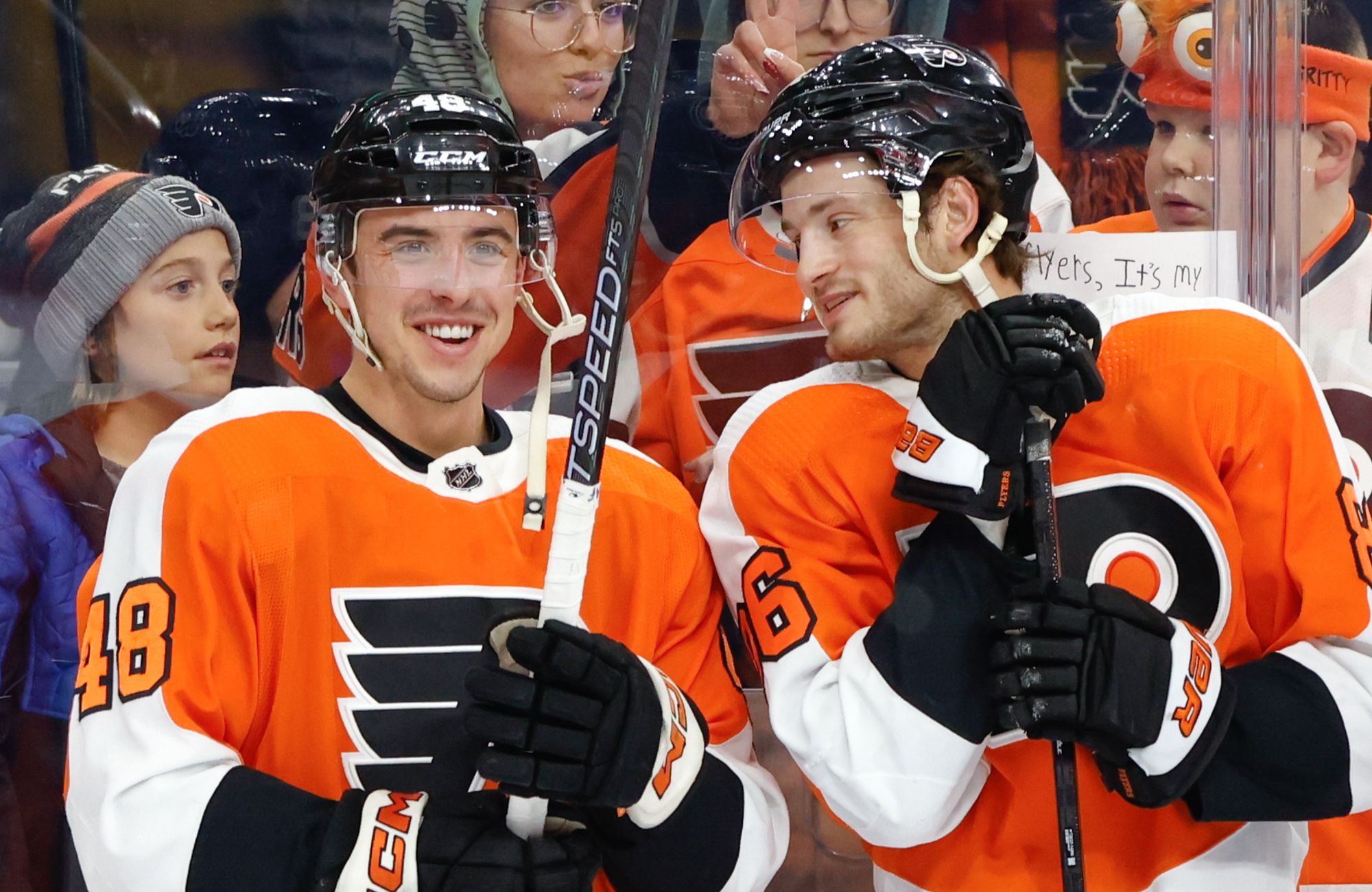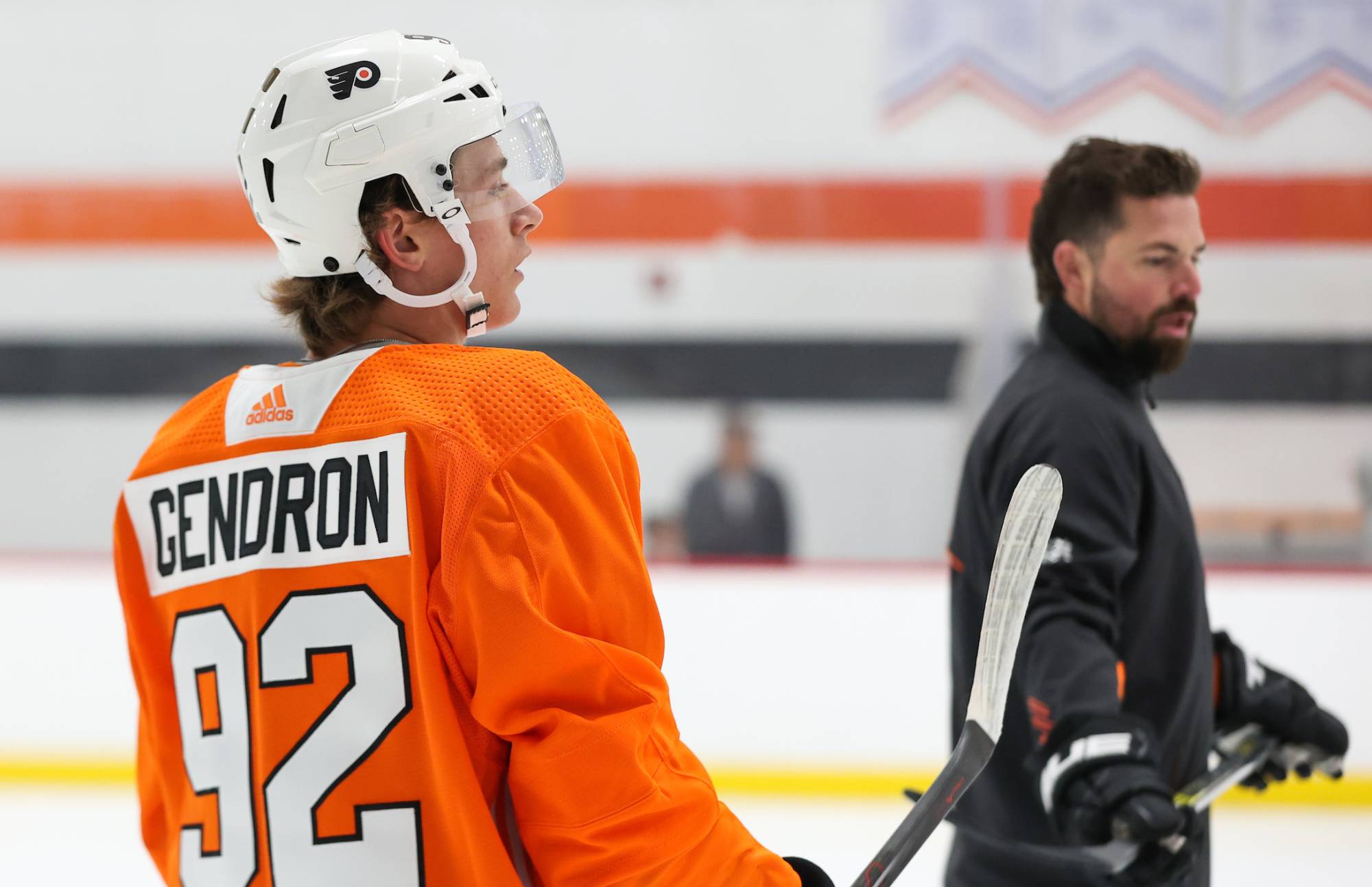Last summer, the Flyers signed Nicolaus Deslauriers to a four year contract worth a total of $7 million following a pretty weak showing in much of the opening days of free agency. Deslauriers, a former third round pick who had made his living on the wrong side of the whistles, ended up being one of the centerpieces now-ex-GM Chuck Fletcher’s offseason along with the trade-and-sign of Anthony DeAngelo and bringing Justin Braun back to the Flyers after trading him at the previous deadline.
At the time, Fletcher was quoted as saying that the signing was an attempt to make the Flyers “hard to play against.” It’s hard to quantify such an idea, especially with any kind of numbers, but Deslauriers definitely did all of the things that Fletcher envisioned him doing for the Flyers: fights, hits, and…well, I guess that’s mostly it. But he did do them.

It’s hard to disentangle Deslauriers from the circumstances in which he arrived in Philadelphia. It felt like things were gearing up towards a big free agent signing—possibly even a high-scoring, homegrown winger—but instead Fletcher spent nearly $8 million on three players who finished the season with a combined 56 points in 201 games. Not to mention the absurdity of Deslauriers’ contract in a vacuum: four years, which is the longest contract he’s ever signed, for $1,750,000 per year, which is by far the highest cap hit he’s ever had, all for a guy over 30 years old who’d never scored more than 15 points in a season.
It was a bad move at the time and it remains a bad move. Who knows how much longer Deslauriers will stick in Philadelphia. If they’re going to commit harder to a rebuild, it could really go either way. On one hand, he’s not exactly lifting the team’s level of play above that of a rebuilding roster, he might be hard and costly to move, and he’s at least entertaining in an old fashioned hockey kinda way. On the other hand, once and future GM Daniel Briere may want to shed his inherited roster of all the contract blemishes as soon as he’s able to.
Three Questions
Did they live up to expectations?
Deslauriers was expected to be a blue collar winger that made the Flyers more physical. And you could argue that he did that: he finished third in the league (and first among forwards) with 306 hits, finished first in fighting majors with 14, and finished second in penalty minutes with 136. On top of that, he scored around his career average with 6 points and 6 assists and his Corsi-For percentage relative to his teammates was basically a career best (even though it was still negative). So, yes, he lived up to the expectations that the Flyers’ management and the low, low expectations of the fans. In short, he did his job, and sometimes that’s all we can ask.
What can we expect from next season?
If Deslauriers plays out the entire four-year contract that Chuck Fletcher signed him to, it’ll be the most games (326 games) he’s played for any team by a pretty significant margin. And there’s a reason why he’s been on five different teams in 10 seasons and maxed out at 211 games for the Buffalo Sabres during their absolute worst years. His stick skills both on offense and defense are not at the level of an NHL player, so he’s had to rely on his physicality, and as he ages deeper into his 30s, having laid 1,800+ hits and fought 96 times at the professional level, it can only be assumed that it’s going to be harder and harder to keep doing that.
But also, the Flyers are under a different leadership group than the one that signed him, so there’s the possibility that he doesn’t finish out that contract. As of now, there’s still a chance he’s bought out this summer or—and the odds here are slimmer thanks to that contract—that he’s traded elsewhere. If he is here next season, I think it’s safe to say we can expect everything that we got from Deslauriers this season, just slightly less.
How do we grade their 2022-23 season?
There is a concept in special education called “least-restrictive environment.” It states that students whose abilities are different than their peers be educated in a setting that is as similar as possible to those peers. There is support provided, accommodations made, and expectations are slightly different, all so that the students are put in the best possible position to succeed to the highest level that their ability will allow them to.
Now, the NHL is not a public education institution, so nobody with different abilities needs to be there. After all, LRE is based on the idea that every student should have the same opportunities whenever possible and top-level professional sports do not require equity. But when we’re handing out grades, it makes sense to grade somebody on how they did with the things placed in front of them. Nic Deslauriers, when placed in a role at the NHL level that was slightly modified to better fit his skills—around 10 minutes a night playing a checking role most often with guys like Patrick Brown, Lukas Sedlak, and Zack MacEwen—with expectations that considered his abilities and his past performances, mostly succeeded this year.
C+

